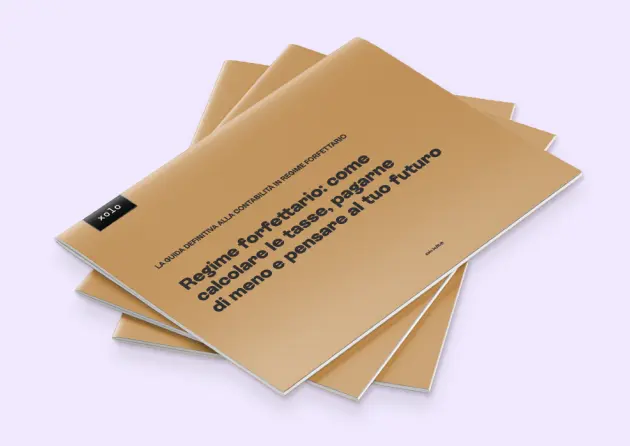If opening a VAT number raises a lot of doubts for you? We solve them.
New beginnings can be scary: we're here to answer all your questions about your future as a freelancer.
The VAT number is the tool through which self-employed workers, freelancers, and companies can operate in full compliance with the Italian tax regime.
In terms of structure, the VAT number consists of an 11-digit code that uniquely identifies the taxpayer, whether it's an individual or a legal entity:
- The first 7 digits link the VAT number to the taxpayer
- The next 3 digits serve for territorial identification by the Revenue Agency
- If the total amount of stamp duty due on invoices issued in the first two quarters does not exceed €5,000, the payment can be made together with the duty due for the third quarter, by November 30th.
The VAT number can also coincide with the tax code, but only if the activity is represented by an individual.
Internationally, the VAT number code is preceded by the abbreviation of the home country: for example, Italian VAT numbers will start with the abbreviation IT followed by 11 digits.
In Italy, opening a VAT number is mandatory in all cases where the professional or business activity is carried out on a habitual and continuous basis.
Furthermore, the VAT number is necessary for anyone who wants to issue an invoice for a sold good or provided service. For this reason, opening the VAT number is one of the fundamental steps to start a business.
Alternatively, if the activity is carried out sporadically and not continuously, or as an occasional service, it is possible to operate without a VAT number, using the withholding tax. In this case, the activity must not be carried out for more than 30 days per year for each client and must not continue constantly over time, and for a maximum ceiling of €5,000 gross annual revenues. For more information on occasional services, we recommend checking out this article on our blog.
The costs to open a VAT number can vary depending on the opening methods and the type of activity to be carried out.
If your activity is mainly intellectual, you will need to open a VAT number as a freelancer, if it is artisanal or commercial you will need to open a VAT number as a sole proprietorship. To open a VAT number as a freelancer, costs may vary depending on whether you decide to:
- open it independently: no cost
- rely on an intermediary (such as an accountant or a CAF): in this case, the registration and opening procedure will be paid
To open a VAT number as a sole proprietorship, in addition to the intermediary's cost, you will need to bear the following fixed costs of registration with the Chamber of Commerce:
- stamp duty: €17.50
- secretarial fees: €18
- registration with the Chamber of Commerce: €44.00
If you want to open a VAT number under the flat-rate scheme and benefit from all the advantages offered by this tax regime, you'll be happy to know that with Xolo the procedure is really simple and fast (did you know it's also free? Not bad, right?!).
To open your VAT number, the first step is to sign up for our service. Registration initially does not involve any commitment on your part but is essential to start the procedure. You can also request a call with one of our experts and be guided step by step in complete peace of mind.
After signing up, you just need to follow the steps indicated on our platform. Once you have provided us with the necessary documents and information, we will take care of opening your VAT number completely.
The opening times are generally very fast but may vary depending on the type of activity you will be conducting:
- if the activity you will be carrying out is as a freelancer, we will open your tax position in just 1-2 working days
- if the activity you will be carrying out is instead artisanal or commercial (sole proprietorship), the timing may vary and be a little longer, because it will depend on the Chamber of Commerce which in this case will have to process the registration and the related inspection.
Opening a VAT number online is an easy and fast process and in general we can say that it is currently the most practical and convenient solution.
Practical because you can do everything comfortably from home, without having to set foot in any office. Convenient because it can allow for considerable economic savings compared to traditional intermediaries (accountants, CAFs).
The flat-rate tax regime was designed to offer the opportunity to start a self-employment activity on particularly favorable terms to all those who wish to operate independently and who meet the necessary requirements to join.
For those who decide to start a business on their own, opening a VAT number under this tax regime offers a series of advantages both from a tax and accounting perspective.
First of all, on the tax side, the flat-rate scheme provides for a single rate. This means that professionals who join the flat-rate scheme will pay 15% of taxes on a flat-rate taxable amount that is calculated depending on the chosen ATECO code.
Furthermore, from an accounting point of view, self-employed professionals under the flat-rate scheme are not required to compile and keep accounting records (e.g., income statement, registration with INAIL or the Business Register).




